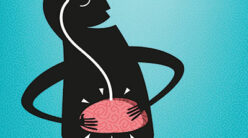Ever wished you had more energy? Do you rely on caffeine to get you started in the morning, or struggle with fatigue more often than you’d like? If you wish you had more get-up-and-go, you’re not alone. One study found that more than half of working adults complain of fatigue during a typical week, and other surveys produce similar results.
That’s the bad news.
The good news is that there are proven ways you can boost your energy and help sustain it as well.
Here’s a closer look at some of the ways your energy may be sapped, along with how to increase and conserve yours.
Why Don’t I Have Any Energy?
There are a variety of factors that can negatively affect your energy levels. You might be feeling drained if you are:
- failing to get enough sleep
- dealing with stress, anxiety, or depression
- drinking too much alcohol or, paradoxically, too much caffeine
- recovering from surgery
- taking certain types of medications, including antihistamines, antidepressants, or pain medicines
- going through a major lifestyle change, like moving or having a baby
“Lack of energy—especially during the pandemic—is very common, due to high stress levels, lack of regular physical activity, and no structure with meals and sleep times, as well as overwhelming fear, anxiety, and depression,” says Vicki Shanta Retelny, registered dietitian nutritionist and creator of the podcast Nourishing Notes. “Emotional and physical stress is draining, and it saps energy levels quickly.” While the pandemic has eased, the enormous impact it’s had on most people may continue to affect our minds and energy levels.
One of the easiest ways to boost your energy is to address it with a better diet. For optimal energy levels, Retelny recommends limiting highly processed foods and sugary drinks, which sap energy levels. Instead, choose whole foods, such as vegetables, fruits, and whole grains.
A common, but often overlooked, cause of fatigue is dehydration.
“If you are feeling low energy, make sure you are drinking enough water or eating hydrating foods,” says Retelny. “If you’re dehydrated, you’ll feel low energy, as your body is about 60 percent water. Without water, your body can’t function efficiently. . . . You won’t think as clearly, move as spryly, or eliminate toxins as well—and in turn, you’ll feel fatigued.”
The goal? Throughout the day, drink about half of your body weight in ounces (e.g., a 140-pound woman should drink at least 70 ounces), most of which should be water.
It may sound counterintuitive, but when you’re dragging, it can boost your energy to move your body. Regular exercise makes your heart stronger and improves your overall circulation, which in turn increases the amount of oxygen in your body at any given time. And taking a break when you’re tired to move your body—like taking a brisk stroll around the block or walking the stairs at your office for several minutes—boosts your heart rate, which also improves blood flow to your brain.
The next time you feel tired, get up and move for five to 10 minutes. You’ll feel refreshed in the short-term and help boost your energy levels over the long-term.
Not surprisingly, boosting your energy starts with getting more sleep. It’s not only that sleep gives your body a chance to rest and recover: Researchers also believe that it helps your body conserve and restore energy. Glycogen, which is used to store energy in the brain, goes down while you’re awake. But sleep helps restore your levels of glycogen.
To get the most from your shut-eye, maintain a regular sleep and wake schedule so it will be easier to fall asleep and stay asleep. Keeping your bedroom cool, dark, and quiet will also help improve sleep quality. Put your smartphone and other electronic devices in another room, and avoid using them in the hour before bedtime, as the light from devices can trick your brain into thinking it’s daylight.
Most of us spend hours on screens every day, which is taxing for the eyes and brain. You need to take breaks from your screens. Close your eyes; take some deep, relaxed breaths; get up and stretch; and let go of your worries. These mini-breaks can recharge you and make you feel more energetic all day long.
Kelly K. James is a mother, writer, and certified personal trainer based in the Chicago area.






